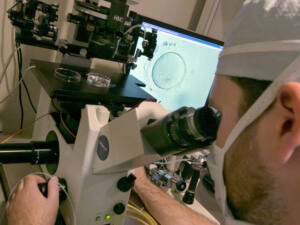
WelCom April 2024
In a recent letter to Senators, four US Bishops’ Conference chairmen argue that there isn’t a scenario where in vitro fertilisation (IVF) is a morally acceptable means of pregnancy, and therefore legislation to establish a federal right to the treatment shouldn’t be passed.
The 28 February letter was the bishops’ response to the proposed Access to Family Building Act, which would establish a federal right to the treatment.
How IVF works is that mature eggs are collected from ovaries and fertilised by sperm in a lab. Then a procedure is done to place one or more of the fertilised eggs in the woman’s uterus. Generally, a full IVF cycle takes about two to three weeks.
In the letter, the USCCB chairmen acknowledged the challenges families face with infertility, but emphasised that families shouldn’t turn to IVF as a solution.
‘As pastors, we grieve with many couples bearing this cross and seek to be a part of a community that accompanies them in a way that helps them to flourish in love,’ the bishops wrote.
‘The solution, however, can never be a medical process that involves the creation of countless preborn children and results in most of them being frozen or discarded and destroyed,’ they added. ‘For this and other deeply troubling problems with the bill, we strongly oppose the Access to Family Building Act.’
The letter was signed by Archbishop Borys Gudziak, Bishop Michael Burbidge of Arlington, Bishop Robert Baron of Winona-Rochester and Bishop Kevin Rhoades of Fort Wayne-South Bend.
Source: Cruxnow